Square Hole Titanium Mesh Video
Square Hole Titanium Mesh PDF
Square Hole Titanium Mesh Specification
| Name | Picture | Item No. | Specification |
Square Hole Titanium Mesh |  | RTWF100100 | 100*100mm |
| RTWF120120 | 120*120mm |
| RTWF120150 | 120*150mm |
| RTWF50150 | 150*150mm |
| RTWF200180 | 200*180mm |
| RTWF250200 | 250*200mm |
Advantages of XC Medico's Products
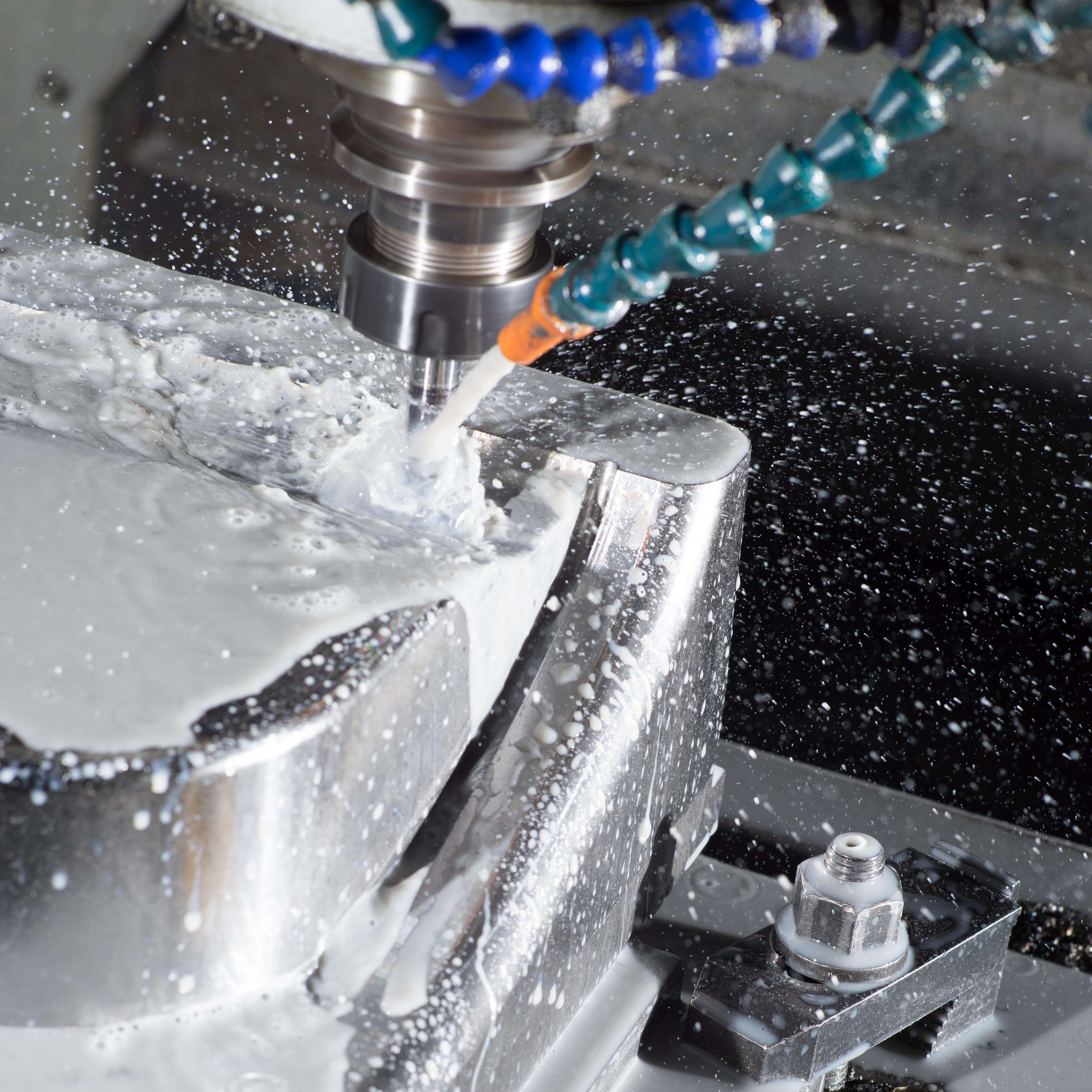
CNC Preliminary Processing
The computer numerical control technology is used to precisely process orthopedic products. This process has the characteristics of high precision, high efficiency, and repeatability. It can quickly produce customized medical devices that conform to the human anatomical structure and provide patients with personalized treatment plans.
| 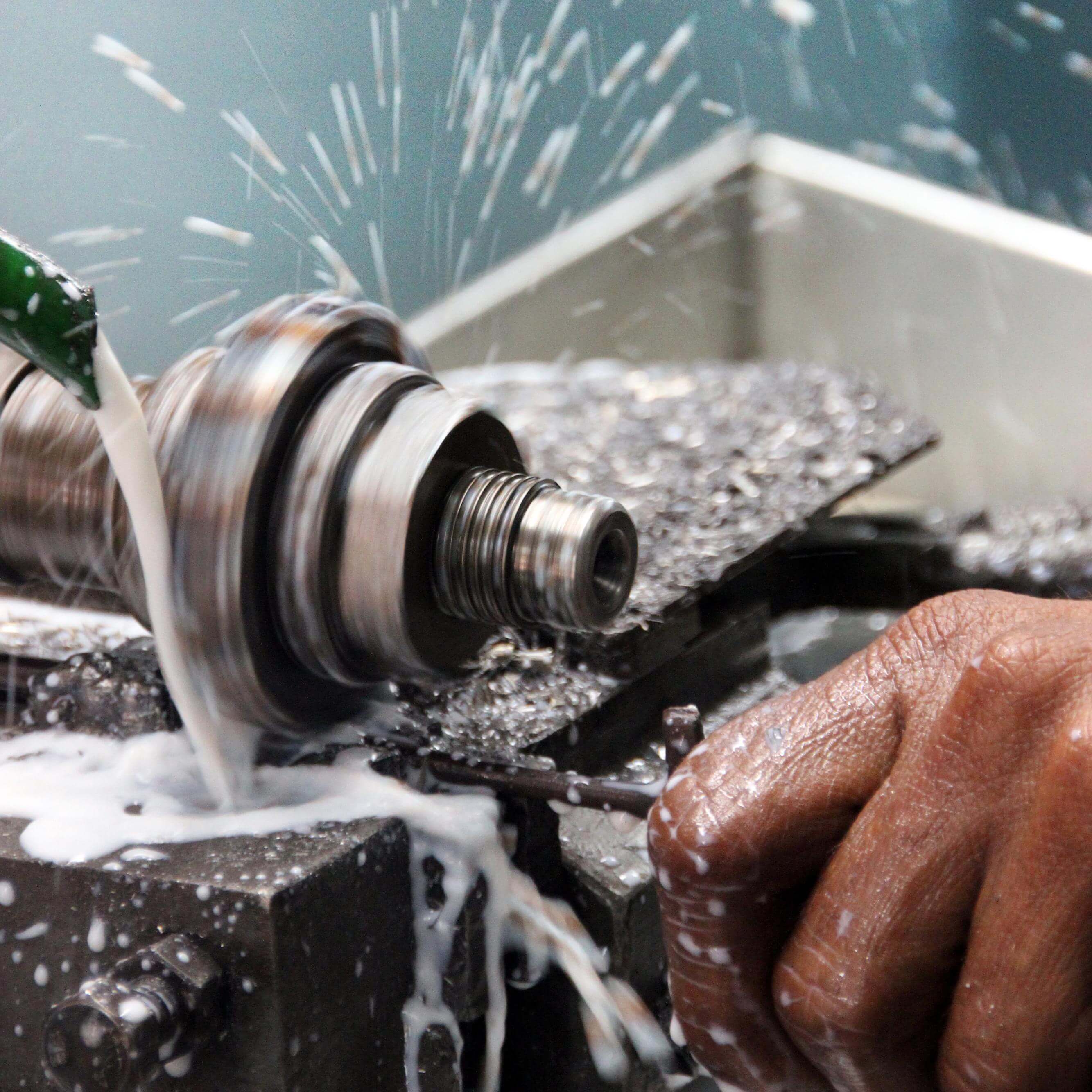
Product Polishing
The purpose of orthopedic products polishing is to improve the contact between the implant and human tissue, reduce stress concentration, and improve the long-term stability of the implant. | 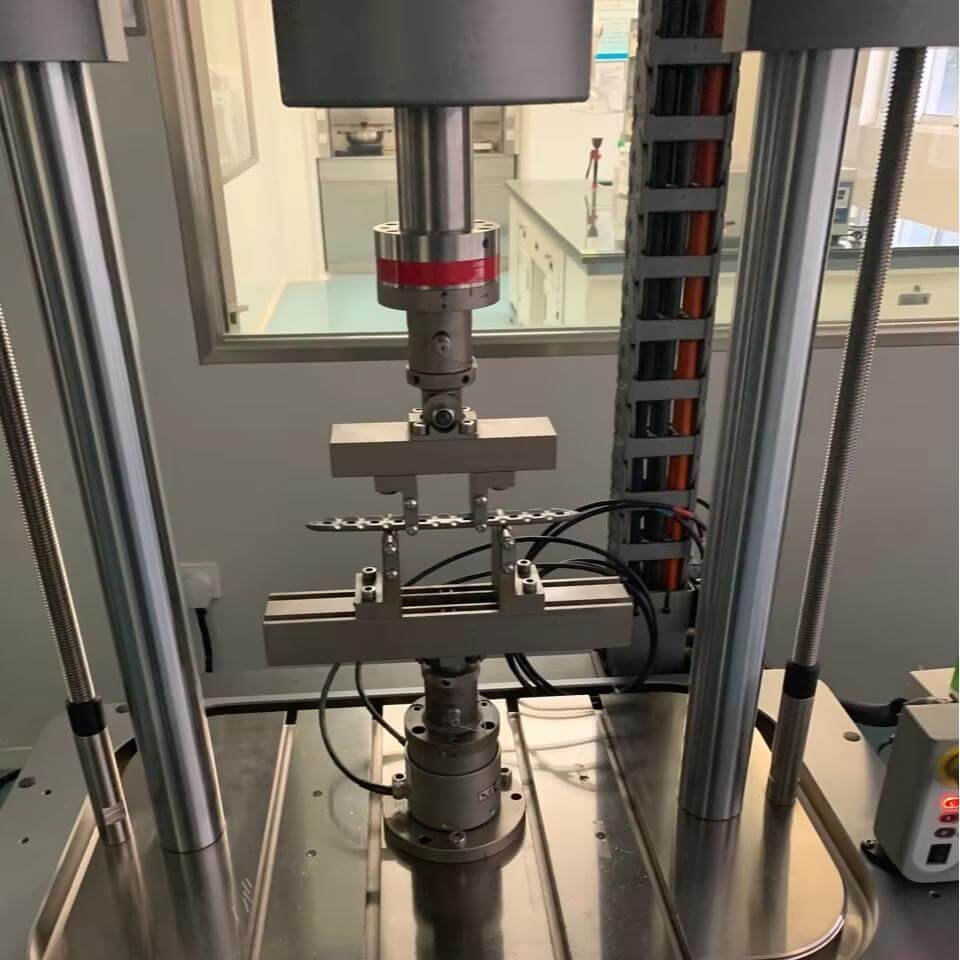
Quality Inspection
The mechanical properties test of orthopedic products is designed to simulate the stress conditions of human bones, evaluate the load-bearing capacity and durability of implants in the human body, and ensure their safety and reliability. |
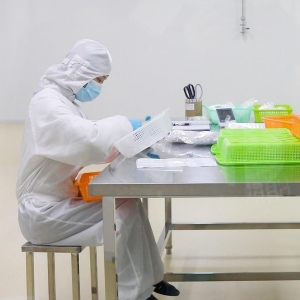
Product Package
Orthopedic products are packaged in a sterile room to ensure that the product is encapsulated in a clean, sterile environment to prevent microbial contamination and ensure surgical safety.
|  Product Warehouse Product Warehouse
The storage of orthopedic products requires strict in-and-out management and quality control to ensure product traceability and prevent expiration or wrong shipment. | 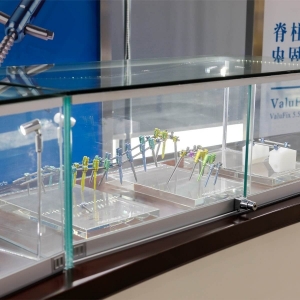 Sample Room Sample Room
The sample room is used to store, display and manage various orthopedic products samples for product technology exchanges and training. |
The Process To Cooperate With XC Medico
1. Ask Xc Medico Team For Square Hole Titanium Mesh Product Catalog.
2. Choose Your Interested Square Hole Titanium Mesh Product.
3. Ask For A Sample To Test Square Hole Titanium Mesh.
4.Make An Order Of XC Medico's Square Hole Titanium Mesh.
5.Become A Dealer Of XC Medico's Square Hole Titanium Mesh.
The Advantages To Be A Dealer Or Wholesaler Of XC Medico
1.Better Purchase Prices Of Square Hole Titanium Mesh.
2.100% The Highest Quality Square Hole Titanium Mesh.
3. Less Ordering Efforts.
4. Price Stability For The Period Of Agreement.
5. Sufficient Square Hole Titanium Mesh.
6. Quick And Easy Assessment Of XC Medico's Square Hole Titanium Mesh.
7. A Globally Recognized Brand - XC Medico.
8. Fast Access Time To XC Medico Sales Team.
9. Additional Quality Test By XC Medico Team.
10. Track Your XC Medico Order From Start To Finish.
Square Hole Titanium Mesh: A Comprehensive Guide
Square Hole Titanium Mesh is a cutting-edge material used in orthopedic and reconstructive surgeries to stabilize and support bone fractures, defects, and deformities. This mesh type, made from medical-grade titanium, is designed to offer enhanced strength, flexibility, and biocompatibility. It is widely used in complex surgeries, such as craniofacial reconstructions, pelvic and spinal surgeries, and the treatment of bone defects. This comprehensive guide will delve into the characteristics, advantages, potential risks, and future market outlook of Square Hole Titanium Mesh in orthopedic applications.
What is Square Hole Titanium Mesh?
Square Hole Titanium Mesh is a form of titanium mesh used in medical procedures to support and stabilize fractured or weakened bones. Unlike traditional round-hole titanium mesh, the square-hole design allows for better mechanical strength and load distribution, which is crucial for applications that require enhanced stability. This mesh is typically used in procedures involving bone reconstruction, fracture fixation, and even in the treatment of large bone defects.
The mesh is crafted from high-quality titanium alloy, known for its biocompatibility, corrosion resistance, and lightweight properties. Square Hole Titanium Mesh is primarily used for reinforcing bones in the skull, spine, pelvis, and other critical anatomical structures. Surgeons customize the mesh to fit specific anatomical needs, ensuring that it provides optimal support during the healing process.
Square Hole Titanium Mesh Features
Biocompatibility
Titanium is known for its excellent biocompatibility, which minimizes the risk of allergic reactions and promotes tissue integration. The mesh is well-accepted by the body, reducing the chances of rejection.
Strength and Durability
The square hole design provides superior mechanical strength compared to round-hole mesh, ensuring that the mesh can withstand the mechanical forces exerted during the healing process.
Flexibility
The mesh is flexible and can be easily shaped and molded to match the anatomical contours of the patient’s bones, offering a custom fit for better alignment and stability.
Corrosion Resistance
Titanium's natural resistance to corrosion ensures that the mesh remains stable and functional over time, even in the highly corrosive environment of the human body.
Lightweight
Despite its strength, titanium mesh is lightweight, which makes it easier for surgeons to handle and place, reducing strain during surgery and improving overall procedural efficiency.
Radiolucency
Titanium mesh is radiolucent, meaning it does not interfere with postoperative imaging, allowing for clear X-rays, CT scans, or MRIs to assess healing progress.
Square Hole Titanium Mesh Advantages
Enhanced Structural Support
The square holes improve the distribution of stresses, making the mesh stronger and less prone to failure under load. This is particularly important in surgeries where the bone needs to be reinforced for optimal healing.
Customized Fit
Surgeons can easily shape and trim the mesh to suit the patient’s specific anatomical requirements, allowing for better bone alignment and stabilization.
Minimal Invasive Procedures
The lightweight and flexible nature of the mesh allows for less invasive surgical techniques, reducing patient trauma and speeding up recovery times.
Long-Term Durability
Titanium's high resistance to corrosion, fatigue, and wear ensures that the mesh will maintain its integrity over time, making it ideal for long-term fixation.
Improved Fracture Healing
By providing rigid support to fractured bones, Square Hole Titanium Mesh enhances the healing process, reducing the risk of malunion or non-union of bone fragments.
Square Hole Titanium Mesh Treatment of Fracture Types
Craniofacial Fractures
In surgeries involving skull fractures or facial bone reconstruction, Square Hole Titanium Mesh is used to support the fractured bones, ensuring proper alignment and stability during the healing process.
Pelvic Fractures
The pelvis is a critical weight-bearing region, and fractures in this area require robust support. The mesh helps stabilize pelvic bones and facilitates proper healing, reducing complications.
Spinal Fusion
Square Hole Titanium Mesh is used in spinal surgery to reinforce vertebral bodies during fusion procedures. The mesh provides a scaffold for bone grafts and helps maintain vertebral alignment while healing occurs.
Bone Defects
In cases where there is significant bone loss due to trauma, disease, or congenital conditions, the mesh can act as a barrier or scaffold, facilitating bone regeneration and repair.
Comminuted and Complex Fractures
For fractures involving multiple bone fragments or significant bone displacement, Square Hole Titanium Mesh provides reliable fixation to maintain anatomical integrity during the healing process.
Risks of Square Hole Titanium Mesh Surgery
Infection
Although titanium is highly resistant to corrosion and infection, any surgical implant carries a risk of infection, especially in the early postoperative period.
Rejection or Allergic Reaction
Although rare, some patients may experience an allergic reaction to titanium or other materials in the mesh. This can lead to inflammation, discomfort, or implant failure.
Migration or Displacement
In some cases, the mesh may migrate or shift from its intended position, particularly if it is not secured properly during surgery. This can affect the healing process and may require further surgical intervention.
Bone Resorption
While titanium mesh helps support the bone, there is a small risk that prolonged use could contribute to bone resorption in certain areas. This is more common in patients with underlying bone density issues.
Mechanical Failure
Although Square Hole Titanium Mesh is designed to be strong and durable, excessive mechanical stress or improper placement could lead to mesh failure or fracture. Proper surgical technique is critical to prevent this.
Square Hole Titanium Mesh Future Marke
Rising Incidence of Bone Fractures
With an aging global population and the increasing frequency of trauma-related injuries, the demand for advanced orthopedic implants, including Square Hole Titanium Mesh, is likely to rise.
Technological Advancements
Continued advancements in 3D printing, material science, and minimally invasive surgical techniques will enhance the customization and application of titanium mesh, further expanding its use in various surgical fields.
Growing Adoption of Titanium Implants
Titanium's biocompatibility and mechanical properties make it an ideal material for surgical implants, and as surgical techniques evolve, more hospitals and medical centers are adopting titanium-based solutions for fracture repair.
Expanding Applications in Orthopedics
Square Hole Titanium Mesh is likely to see more widespread use in spinal, craniofacial, and orthopedic trauma surgeries, as well as in the treatment of bone cancers and congenital defects.
Summary
Square Hole Titanium Mesh has become an essential tool in modern orthopedic and reconstructive surgery due to its superior mechanical properties, biocompatibility, and adaptability. The square hole design provides enhanced strength and stability, making it a preferred choice for complex fractures, bone defects, and craniofacial reconstructions. While risks such as infection, rejection, and migration must be carefully managed, the mesh’s advantages—such as improved healing, customized fit, and long-term durability—far outweigh these potential concerns. The future of Square Hole Titanium Mesh looks promising, with increasing adoption in a variety of orthopedic surgeries, driven by technological advancements and the growing need for reliable, customizable implants. With continued research and innovation, Square Hole Titanium Mesh will remain a cornerstone of orthopedic surgery for years to come.
Warm reminder: This article is for reference only and cannot replace the doctor's professional advice. If you have any questions, please consult your attending physician.
English
Русский
简体中文
繁體中文
العربية
Français
Español
Português
Deutsch
italiano
日本語
한국어
Nederlands
Tiếng Việt
ไทย
Polski
Türkçe
አማርኛ
ພາສາລາວ
ភាសាខ្មែរ
Bahasa Melayu
ဗမာစာ
தமிழ்
Filipino
Bahasa Indonesia
magyar
Română
Čeština
Монгол
қазақ
Српски
हिन्दी
فارسی
Kiswahili
Slovenčina
Slovenščina
Norsk
Svenska
українська
Ελληνικά
Suomi
Հայերեն
עברית
Latine
Dansk
اردو
Shqip
বাংলা
Hrvatski
Afrikaans
Gaeilge
Eesti keel
Māori
සිංහල
नेपाली
Oʻzbekcha
latviešu
অসমীয়া
Aymara
Azərbaycan dili
Bamanankan
Euskara
Беларуская мова
भोजपुरी
Bosanski
Български
Català
Cebuano
Corsu
ދިވެހި
डोग्रिड ने दी
Esperanto
Eʋegbe
Frysk
Galego
ქართული
guarani
ગુજરાતી
Kreyòl ayisyen
Hausa
ʻŌlelo Hawaiʻi
Hmoob
íslenska
Igbo
Ilocano
Basa Jawa
ಕನ್ನಡ
Kinyarwanda
गोंगेन हें नांव
Krio we dɛn kɔl Krio
Kurdî
Kurdî
Кыргызча
Lingala
Lietuvių
Oluganda
Lëtzebuergesch
Македонски
मैथिली
Malagasy
മലയാളം
Malti
मराठी
ꯃꯦꯇꯥꯏ (ꯃꯅꯤꯄꯨꯔꯤ) ꯴.
Mizo tawng
Chichewa
ଓଡ଼ିଆ
Afaan Oromoo
پښتو
ਪੰਜਾਬੀ
Runasimi
Gagana Samoa
संस्कृत
Gaelo Albannach
Sepeti
Sesotho
chiShona
سنڌي
Soomaali
Basa Sunda
Wikang Tagalog
Тоҷикӣ
Татарча
తెలుగు
ትግንያውያን
Xitsonga
Türkmençe
संस्कृत
ئۇيغۇرچە
Cymraeg
isiXhosa
ייִדיש
Yorùbá
isiZulu

















 Product Warehouse
Product Warehouse Sample Room
Sample Room






